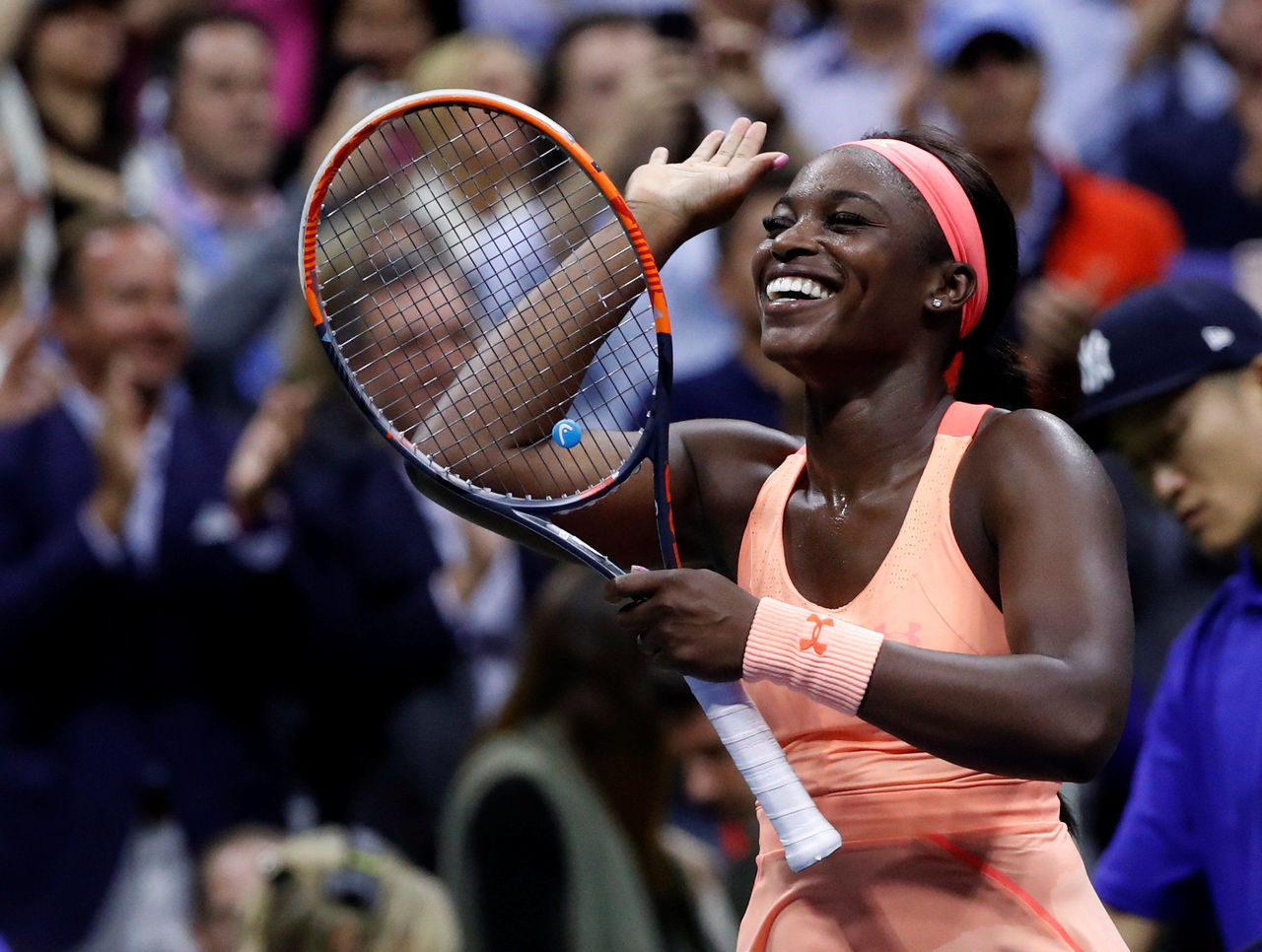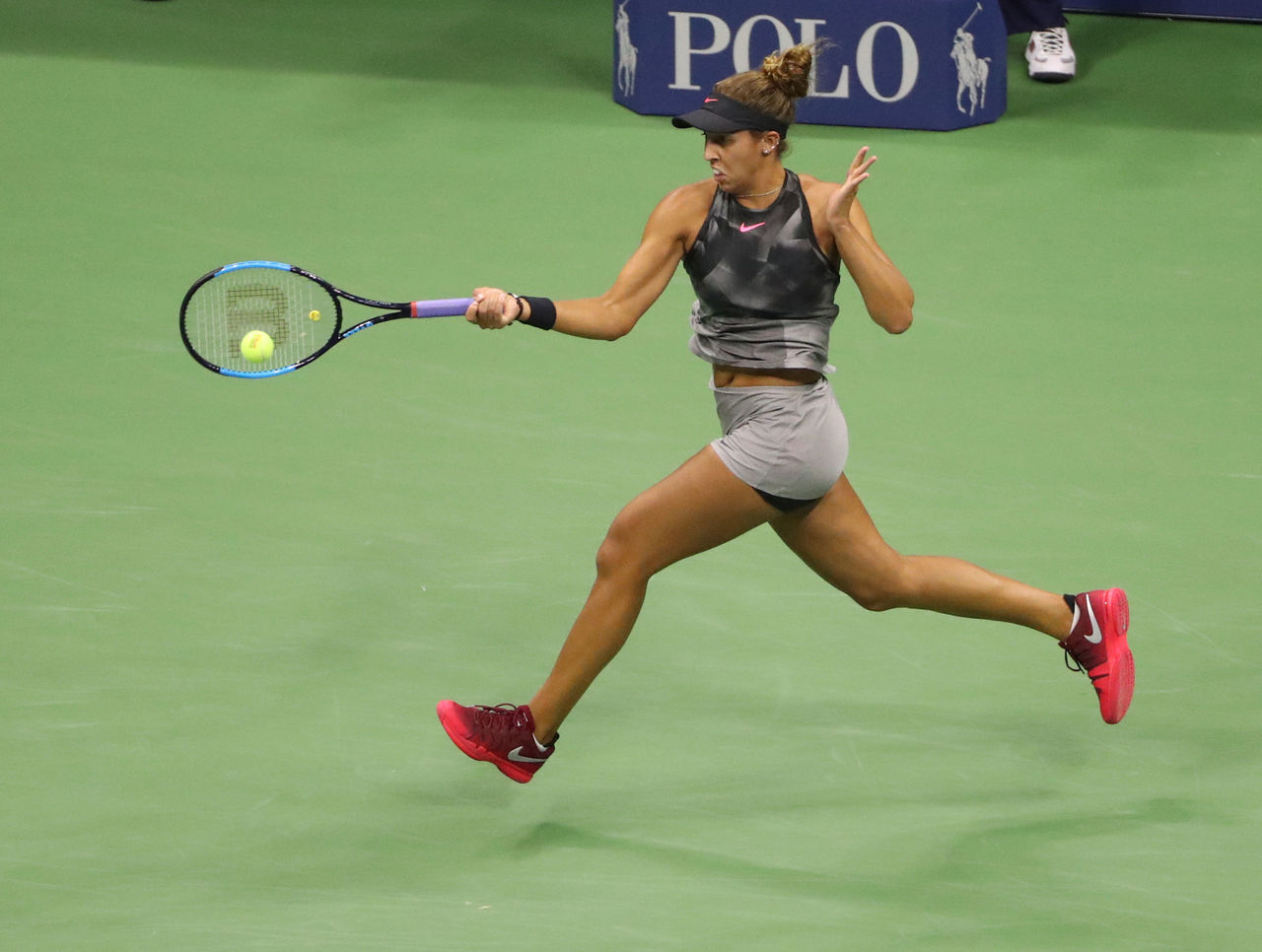US Open final preview: Young Americans take center stage

Venus and Serena Williams may not be ready to pass the torch of American women's tennis just yet - Venus won more Grand Slam matches than anyone on tour this season, and Serena is planning to return from maternity leave in January to defend her Australian Open title - but for the time being, their younger compatriots have stepped up and seized the spotlight.
After emerging from the first all-American US Open semifinal in 36 years, Madison Keys and Sloane Stephens - 22 and 24 years old, respectively - will square off Saturday in the first Slam final for either player.
Comeback kids
Even given their youth, the road to this point has been a winding one for Keys and Stephens, both of whom have taken a while to fully cash in on the promise they showed as teenagers, and both of whom began this year on the shelf due to injuries.
"I was actually just laughing and thinking who would have thought in Australia that Sloane and I would be the finalists at the US Open?" Keys said after her evisceration of CoCo Vandeweghe in the semis. "Neither one of us was playing at the time, both just having surgeries."
US OPEN FINAL! 🙌🏾🇺🇸🎾🎉👏🏾💕 pic.twitter.com/INh11r8GoB
— Pearl (@pearlescent48) September 8, 2017
More impressive than the fact that both have bounced back during injury-shortened seasons, is the fact that they've thrived by weaponizing the parts of their bodies that had to be surgically repaired. Keys has been doing major damage with her backhand, despite a left wrist that has been operated on twice this year. Stephens has gotten here on the strength of her foot speed and dogged retrieving after suffering a stress fracture in her left foot last year and spending the first six months of 2017 rehabbing it.
"I was in a walking boot like a month before I played Wimbledon," Stephens said. "I knew I was going to have to play my way into shape, and I think I've done that pretty well. I got a lot of matches in. I've run a lot. ... I think my movement is probably what's kind of kept me in some of these matches, shockingly."
The fighter
As impressive as Keys' resurgence has been, it isn't entirely surprising. She qualified for last year's WTA Finals, after spending most of the year ranked inside the top 10, and has generally been pretty consistent when healthy. Stephens, though, has been the true breakout star of this summer (even if she technically first broke out almost five years ago).
A month ago, Stephens was ranked 934th in the world. She'd played two matches since her return from the foot injury that had cost her 11 months, and lost both. Dating back to the end of her 2016 season, she'd lost six matches in a row. She hadn't made the second week at a major since the 2015 French Open. She'd never made it past the quarters at a Premier event, and hadn't even made it past the second round at one in two years. Then, out of nowhere, she made the semis at two Premier tournaments in a row - in Toronto and Cincinnati - and has now followed it up with this run to the finals in Flushing Meadows. Her ranking will climb to 22nd in the world even if she loses on Saturday; if she wins, she'll be back inside the top 20.

During this incredible run, she's beaten no-joke opponents like Lucie Safarova (twice), Petra Kvitova (twice), Angelique Kerber, and, most recently and most memorably, the elder Williams sister. Perhaps most tellingly, she's 8-0 in three-set matches, with four of those wins coming at the US Open. To her immense physical ability, she has added a newfound resilience that's carried her to new heights.
"When I came back from injury, I didn't have all of my tools," she said. "I didn't know if I was going to be able to run down every ball, didn't know if my power and timing was still going to be there. I didn't know if everything was still going to be right. The only thing I had to rely on was my fight, and making sure every time I was on the court I gave my all."
The slugger
Keys comes armed with some of the biggest weapons in the women's game, and it seems like she's finally figuring out how to harness them. Like Stephens, she feels the time spent away from the tour may have given her something she wouldn't have found otherwise.
"Being away from the game and just remembering why I love competing and all of that, I think it helped me tremendously," she said. "I think, not being there, it just made me realize how much I love it and not to put so much pressure on myself, which I think helps me enjoy being out there a lot more."

The results have spoken for themselves. Keys has been playing with noticeably more freedom, trusting her game and sticking to her aggressive approach even if things seem to be going awry. If she isn't in rhythm from the start, she's mostly managed to hit her way into one. She's 12-1 since Wimbledon, and her only loss came against soon-to-be world No. 1 Garbine Muguruza, in a match in which she had three match points.
With Stephens embracing the role of counterpunching retriever, the onus will be on Keys to dictate points and determine her own fate. Can she can hit with the same combination of precision, power, and relentless depth she did against Vandeweghe? Or will Stephens' defense, and the pressure of her first Slam final, make that onus too great?
Just the beginning?
Both made their first Slam semifinals as 19-year-olds in Australia - Stephens by beating Serena in 2013, Keys by beating Venus in 2015 - and neither had made another one until this week. While it once might've seemed inevitable that the two would be playing in Slam finals at this point in their careers, their various ups and downs and physical and mental struggles made this particular meeting an improbable one.
But now that it seems the future has arrived; perhaps this will indeed be, as Serena suggests, the first of many.
THE PICK: Keys in three sets.
HOW TO WATCH: ESPN (U.S.) or TSN (Canada), Saturday at 4:00 p.m. ET.
(Photos courtesy: Action Images)